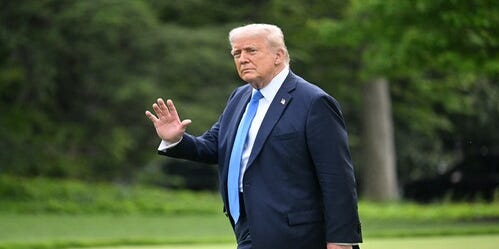Constitutional Clash: Trump Dodges Direct Question on Upholding America's Founding Document

In a revealing interview on NBC's "Meet the Press," President Donald Trump displayed apparent uncertainty about his constitutional obligations when questioned about his aggressive deportation strategy. When directly asked whether he must adhere to the Constitution while implementing his immigration policies, Trump's response was notably ambiguous, simply stating, "I don't know."
The president's hesitation to affirm his commitment to constitutional principles raised eyebrows among legal experts and political commentators. His casual dismissal of a fundamental aspect of presidential responsibility sparked immediate debate about the potential implications for executive power and constitutional governance.
Trump's response underscores the ongoing tension between his hardline immigration stance and the legal framework that guides presidential actions. By expressing uncertainty about constitutional constraints, the president seemed to suggest a willingness to prioritize his policy objectives over traditional constitutional interpretations.
This moment highlighted the complex and often contentious nature of immigration policy during the Trump administration, revealing a potential willingness to challenge established legal norms in pursuit of more aggressive deportation measures.
